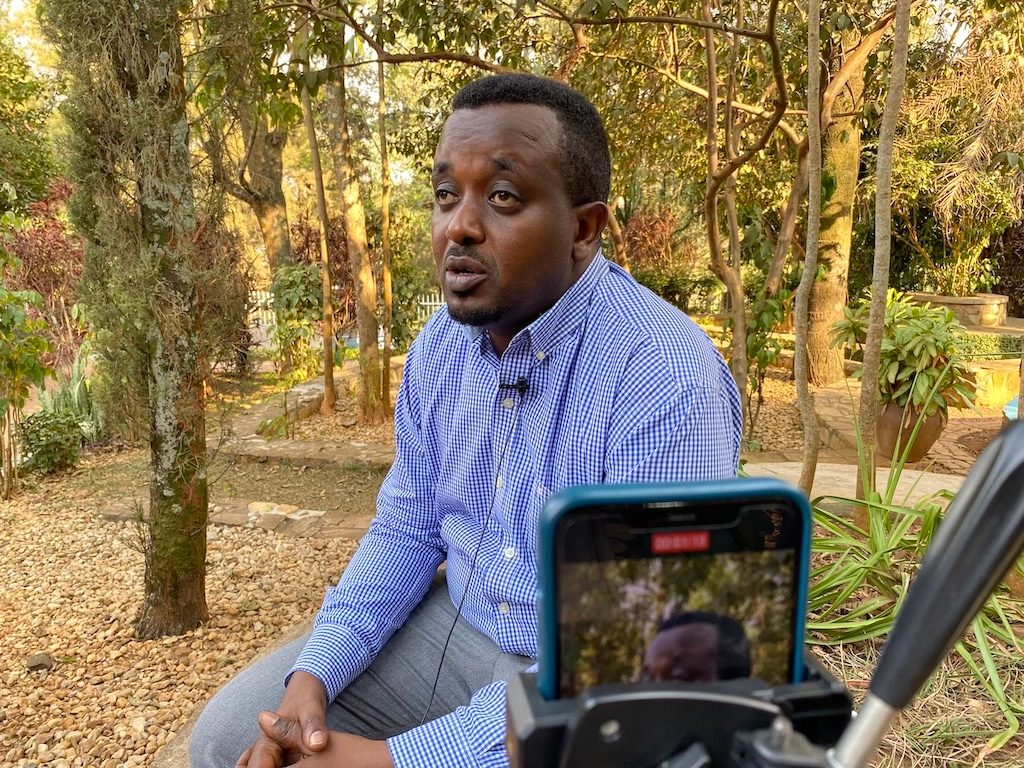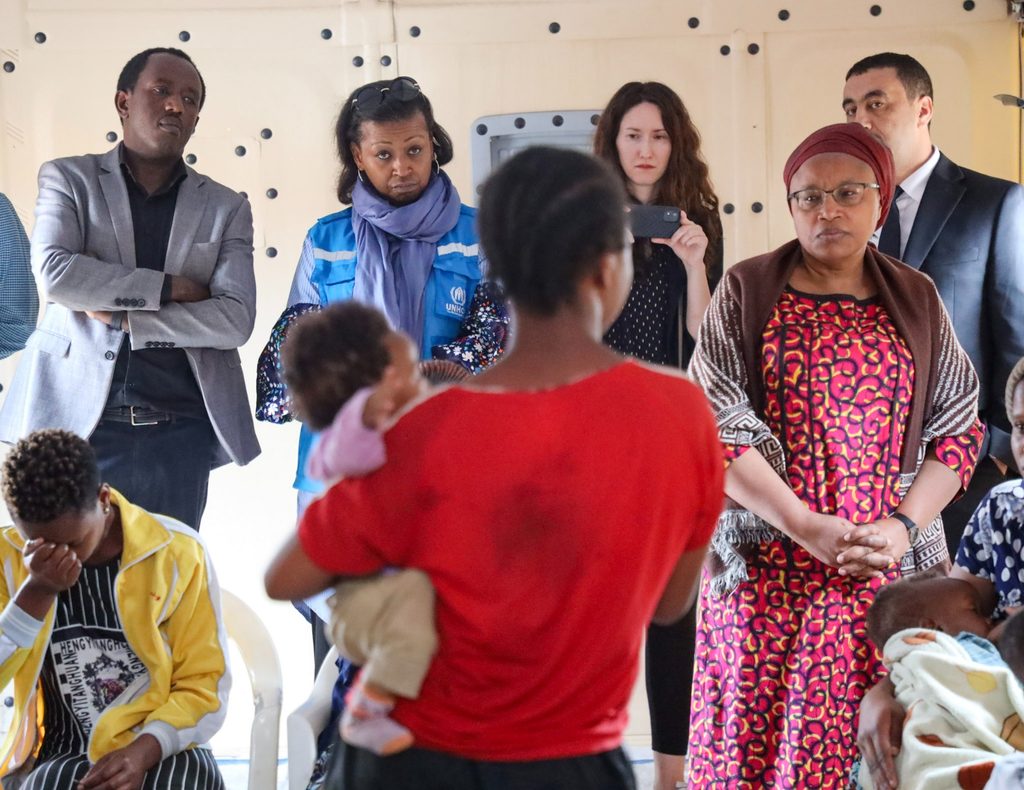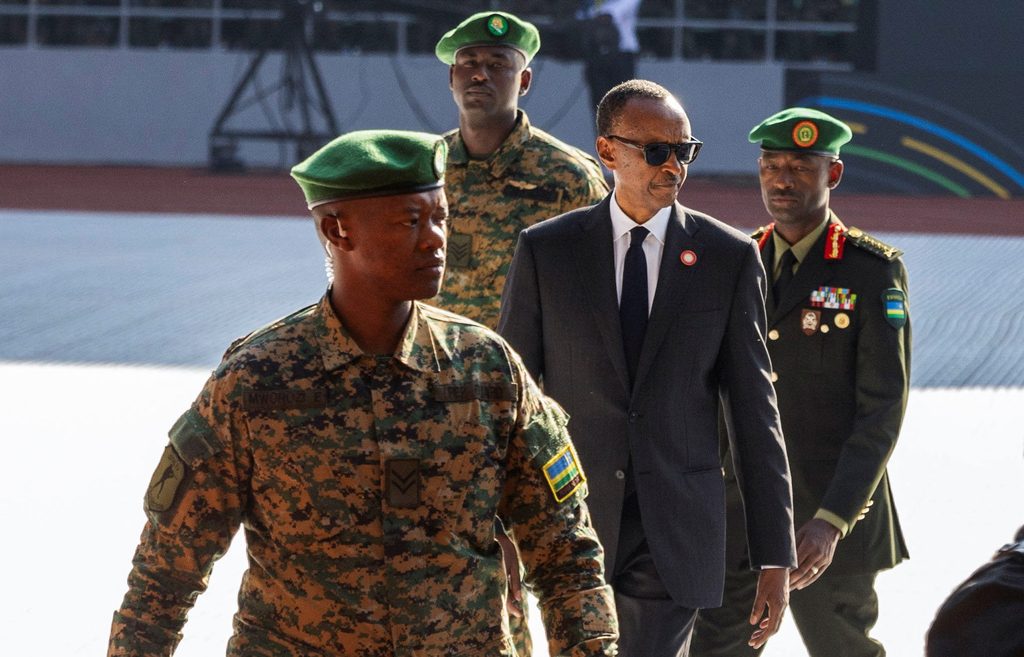KIGALI, Rwanda – Serge Rwigamba, now 43 years old, remembers his friend Patrick who was in front of him as they hid in a church during the 1994 genocide in Rwanda. Patrick was killed. So were Serge’s father and brothers.
Rwigamba was just 13 years old. “Patrick was killed in front of us. That makes [me] think [I was] a candidate, because there was no mercy on age or anything,” Rwigamba told Rappler in an interview on July 24 at the Kigali Genocide Memorial Center.
“They came collecting men. They passed by me, so I was also selected, but for reason I do not understand, they left me sitting and then when they took those people they passed by me,” said Rwigamba.
From April to July 1994, Hutus killed close to a million Tutsis in Rwanda using machetes. An estimated 70% of the Tutsi population was exterminated in only three months, making it the fastest, most barbaric genocide in the world to this day. And it happened only 30 years ago.
Although Rwanda’s economic status is still a Least Developed Country (LDC), it has made tremendous strides from the completely broken nation it was in 1994, where dead bodies laid rotting, the state of corpses an indication of how the victim had been hacked to death.
Today, no one asks who is a Hutu and who is a Tutsi, and Rwigamba is working at a memorial center where he has to relive and retell his story from June 24, 1994, if only to keep their history as accurate as possible to those who come to ask.
Thirty years later, as the world grapples with wars all around, and investigations of atrocity crimes abound in international courts, including the Philippines’ campaign against drugs, post-genocide Rwanda teaches a lesson in combining local and international justice.

Rwanda’s precedence
Kigali is a mountain city, very much like Baguio City, similar in the way that its developed business districts are separated by only a few blocks from the mess and chaos of traditional markets. The cool weather is similar too. Kigali has lesser traffic. Ride-hailing apps are not as common yet, and Rwandans prefer the much cheaper transport mode of motorcycles which they can hail anywhere.
In recent news, Rwanda is where the previous conservative government of the United Kingdom would have sent the refugees it could no longer accommodate. Newly-elected Labour Prime Minister Keir Starmer had scrapped that controversial deal with Rwanda, which is still a member of the Commonwealth.
But in the world of international justice, Rwanda is a trailblazer. The United Nations (UN)-created International Criminal Tribunal for Rwanda (ICTR) was the first court to give a genocide judgment, and the first to interpret the Geneva Conventions clause on genocide. Before it closed in 2015, the ICTR had tried 93 suspects and sentenced 62.
Whether the ICTR was a true success depends on whose perspective is sought. For some, the residual mechanism to follow up on the work of the ICTR has not been commensurate to the massive casualties, especially for the millions of dollars it cost to put it up. That some perpetrators have evaded justice, and that big fish suspect Felicien Kabuga will also avoid trial due to dementia, do not add to the confidence.
For UN executives, it’s about what the world has gained from it that matters. “Rwanda gave the world not only precedence in terms of jurisprudence, but Rwanda also gave the world a pause [to ask] ourselves, what exactly did we do? Like, as human beings, this is what we are capable of doing,” Alice Wairimu Nderitu, UN Special Adviser for the Prevention of Genocide, told Rappler.
At the entrance of the Kigali Genocide Memorial Center hangs a huge poster bearing the quote of former UN secretary general Ban Ki Moon: “We failed in Rwanda.” It refers to the pullout of UN peacekeeping troops in Rwanda while the genocide was happening. Inside the gallery of killed children, one 12-year-old’s last words were: “The UN AMIR will come for us.” They did not. UN AMIR is the United Nations Assistance Mission for Rwanda.
There is full honesty in Rwanda about what the UN had failed to do there in 1994. “I think there is absolutely no doubt that the genocide in Rwanda against the Tutsi, or the genocide in Srebrenica, and almost all conflicts which are ongoing in the world today could have been prevented if there had been more investment by the international community in addressing the causes of this conflict,” Serge Brammertz, Chief Prosecutor of the UN International Residual Mechanism for Criminal Tribunals, told Rappler.
“As international prosecutors, this is always what we call our big frustrations because we are coming in when it’s too late….[But] we’re trying to create some deterrence for the future that those crimes are not taking place anymore. It is a hope, because we have seen that despite the important work done by the top tribunals, conflicts are ongoing in the world today, which is extremely unfortunate,” said Brammertz.

Patience and balance
One such conflict is the estimated 30,000 people killed in the campaign against drugs by former Philippine president Rodrigo Duterte. That, and the killings by the mysterious Davao Death Squad when Duterte was mayor and vice mayor of Davao City, are being investigated by the International Criminal Court (ICC) in The Hague for crimes against humanity.
The ICC process started as early as 2018. In 2024, there have been no warrants of arrest issued so far. The latest development has been ICC prosecution officials requesting interviews with Philippine authorities “under suspicion.”
Brammertz, who was the ICC’s first deputy prosecutor, said that any pursuit of international justice requires patience. “International criminal justice often takes time, if someone was very powerful today, it will be difficult to get this person arrested and prosecuted, but wait a number of years. So you really need patience,” said Brammertz.
Even amid a public breakup of the alliance of Duterte and President Ferdinand Marcos Jr., the current government still has not returned the Philippines to the ICC (Duterte withdrew when the process started in 2018). The Duterte line that local justice is working and therefore removes the ICC’ jurisdiction is still quite popular among Filipinos, although there’s been improvement in public trust for the ICC’s investigation.
Contrary to that Duterte rhetoric, ICC rules do not require that local justice in the Philippines must be non-functioning as a whole, for it to step in. What the ICC requires for its jurisdiction to be applicable is for local justice to be seen as not investigating the very same people for the very same crimes that it is concerned with — for example, Duterte himself, or the people “under suspicion” like Senator Ronald “Bato” Dela Rosa.
Brammertz said that a combined approach of local and international justice is what worked in Rwanda. In Rwanda, when prisons became full of Hutu suspects, the ICTR’s work was complemented by the gacaca courts, or the traditional Rwandan grassroots dispute resolution process. In all, there were 12,000 gacaca courts that tried 1.2 million cases in the Rwandan genocide.
“If you really want to fight for justice and you really want to have accountability, you need to find a way to combine the approach by international justice and domestic justice, and if necessary, also find a way to have traditional forms of justice integrated as well,” said Brammertz.
There have been four convictions of local police involved in drug war killings. The Marcos-time House of Representatives has also been conducting inquiries into what happened under the previous government.
Remembering…and forgetting
While remembering through institutional memory served as a key element in Rwanda moving forward, a crucial factor to the reconciliation was also forgetting — sort of. For one, they needed to forget the ethnic divide between Hutus and Tutsis, despite Hutu genocide killers still living among them to this day, sometimes as close as neighbors. Rwandans blame the roots of the ethnic divide on their Belgian colonizers.
“You remember everything. Almost everything. But you struggle to not remember instead. Because remembering sometimes comes back with very painful memories,” Rwigamba said.
“We think of walls with stains of blood, where kids were smashed against the wall. Those are the kind of things that have stricken our memories. They are very horrible. We remember everything. And we try to not remember everything,” Rwigamba added.
“There was so much to do,” Nderitu said, referring to all the levels of transition that Rwandans had to undergo after genocide, whether legal or moral. “But that’s how the acceptance [of an international court] came. From the knowledge that first, there was so much to do,” she said.

Present-time Rwanda still has so much to do. On Sunday, August 11, Rwandan President Paul Kagame was sworn into office for his fourth term. He had been Rwanda’s president for nearly a quarter of a century, or since 2000. Kagame is a Tutsi military officer whom Rwandans consider a war hero for his role in the revolution.
That length in office is questionable by some democratic standards, and his regime has not escaped scrutiny, “his reputation sullied by allegations of rights abuses and suppression of dissent plus supporting rebels in Democratic Republic of Congo — all accusations he has denied,” Reuters reported on his swearing-in. Human Rights Watch, for example, has continuously monitored threats and harassment “against real and perceived opponents of the government.”
What is not disputed is that Kagame is still very popular, winning 99% of the vote in the last elections. That is another layer to Rwanda’s balance of both justice and politics domestically and internationally.
All of these layers have one imperative only, for Rwanda and all others watching it for lessons that can be gained: for atrocities to never again happen. – Rappler.com
This post was originally published on this site be sure to check out more of their content.








